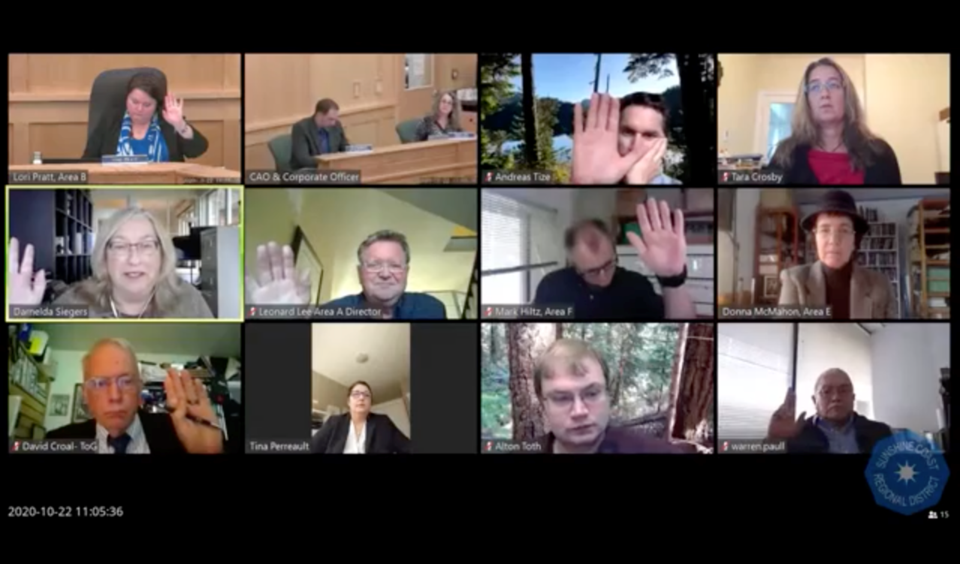Sunshine Coast Regional District (SCRD) directors are looking at the possibility of creating a “community social service” into which all local governments would contribute.
Directors voted unanimously at an Oct. 22 corporate and administrative services committee meeting for staff to prepare a report in November for a budget proposal to put together a feasibility study for the establishment of a new “community social service” function.
If it goes ahead, residents would have the chance to weigh in through an alternative approval process (AAP).
While still in its infancy, the idea for creating a brand new government service goes back to late last year, when the District of Sechelt and SCRD were looking at funding options for police-based victim services. The service, which the RCMP is mandated to provide, supports victims of crime and other traumas and connects them to community resources.
The Ministry of Public Safety and Solicitor General funds most of the service, with additional contributions from local governments. The province expects communities with a population of more than 5,000 with at least four police officers to split the funding with the province 50/50.
In 2018, the province contributed $70,000 to victim services while the SCRD gave $500 in grants-in-aid and Gibsons provided $400. The District of Sechelt provided $41,000 in 2019.
In November 2019, Sechelt Coun. Matt McLean said the SCRD wasn’t paying for its share, and suggested the SCRD establish a service to fund it regionally.
In January, Denise Woodley of Sunshine Coast Community Services Society, which coordinates the program, told SCRD directors there’s been a 300 per cent increase in referrals for the service in the past three years, and in 2019 nearly 450 residents accessed the program. “The need in the community has grown,” she said at the time, adding more staff was needed to ensure the community’s needs were met.
After hearing from Woodley, directors asked staff to look into what it would take to get a service up and running.
At the Oct. 22 meeting, staff presented next steps for establishing a service, including figuring out the tax rate and getting electoral approval through an AAP. Staff recommended starting that process late 2021 or early 2022 because of the number of other AAPs already scheduled for next year, including on whether to install water meters in the District of Sechelt and on shíshálh Nation band lands.
But Sechelt director Darnelda Siegers presented another option to directors.
She endorsed a proposal from McLean for a broader service that would include funding for police-based victim services, but could also be used to fund other region-wide services. The structure of the service would be such that all local governments contribute.
“It would have us as a group, Coast-wide, look at funding services that are being provided by the community for those initiatives that are impacting the whole Sunshine Coast,” Siegers said, adding it would save time for groups since they wouldn’t have to apply for funding to each local government.
All rural directors supported the idea, with the caveat that they continue advocating for more funding from the province.
Chair Lori Pratt voiced “extreme displeasure with the federal and provincial governments’ downloading of services and failing to meet the needs of our residents in some of these social services areas.
“As a local government, somehow our mandate is becoming broader and broader and broader,” she said.
Area A director Lenoard Lee said while supportive, he wanted to see a definition of the service and funding formula.
During the discussion, corporate officer Sherry Reid noted the SCRD would have to consult with the province and ensure the service is clearly defined for users.
– with files from Sean Eckford



